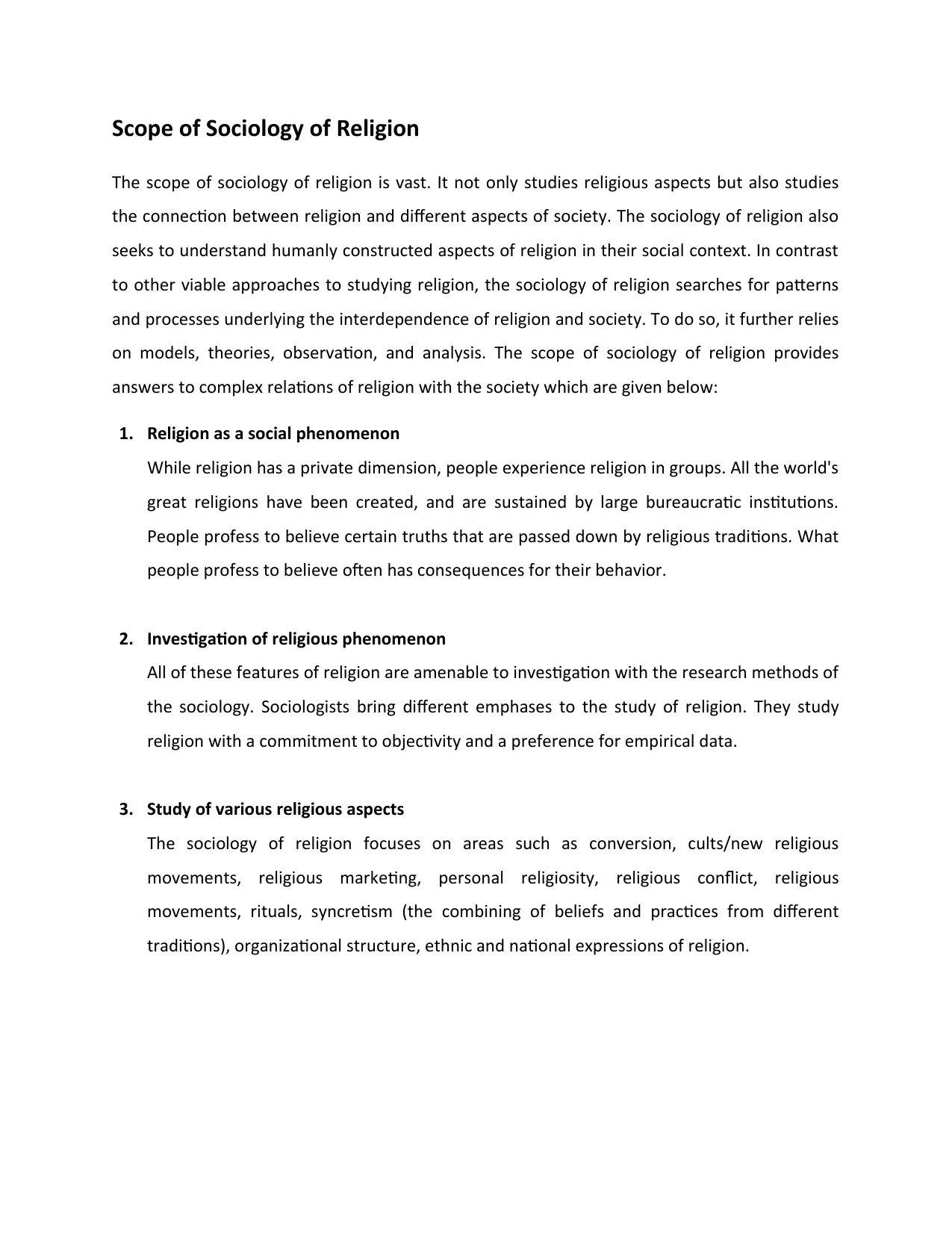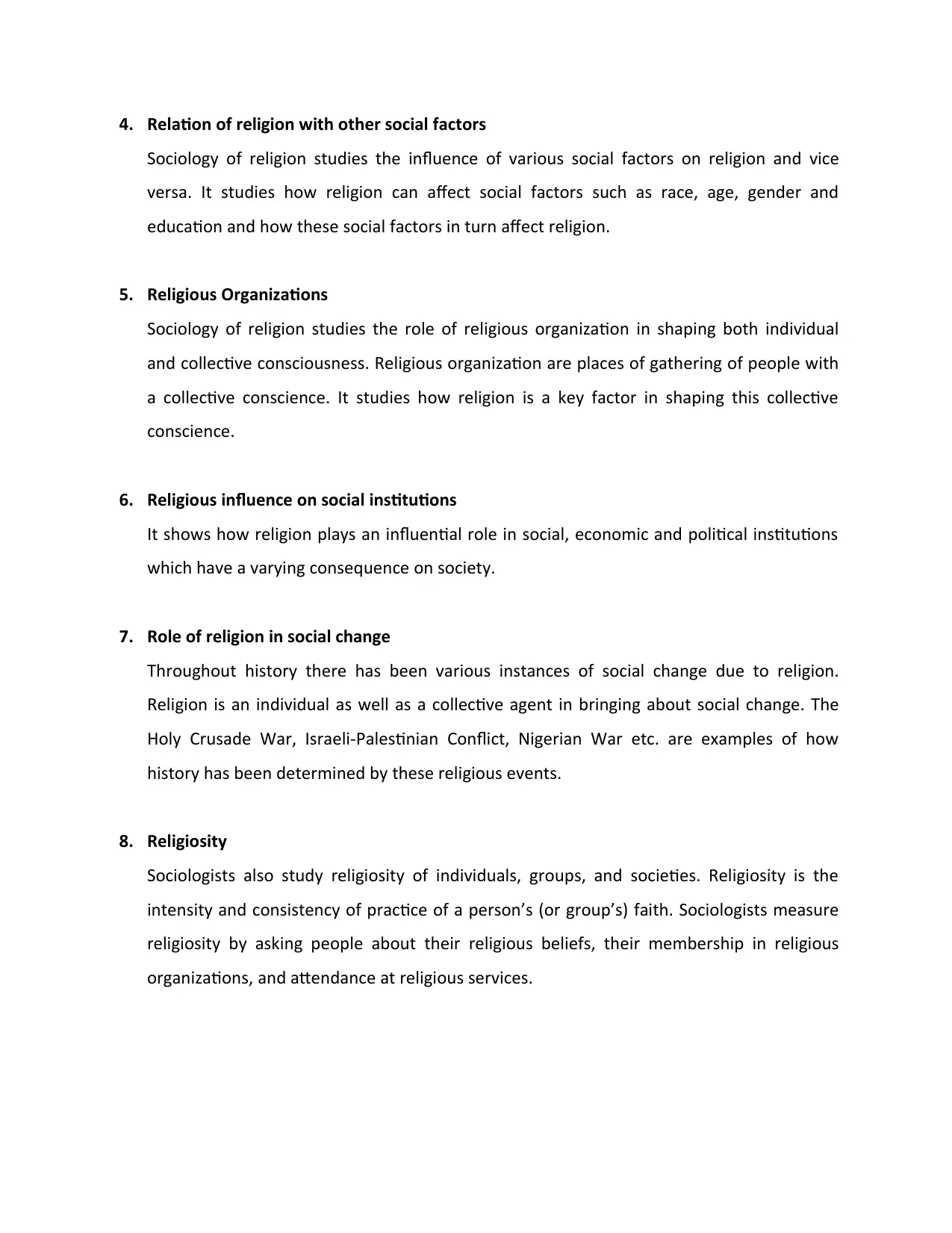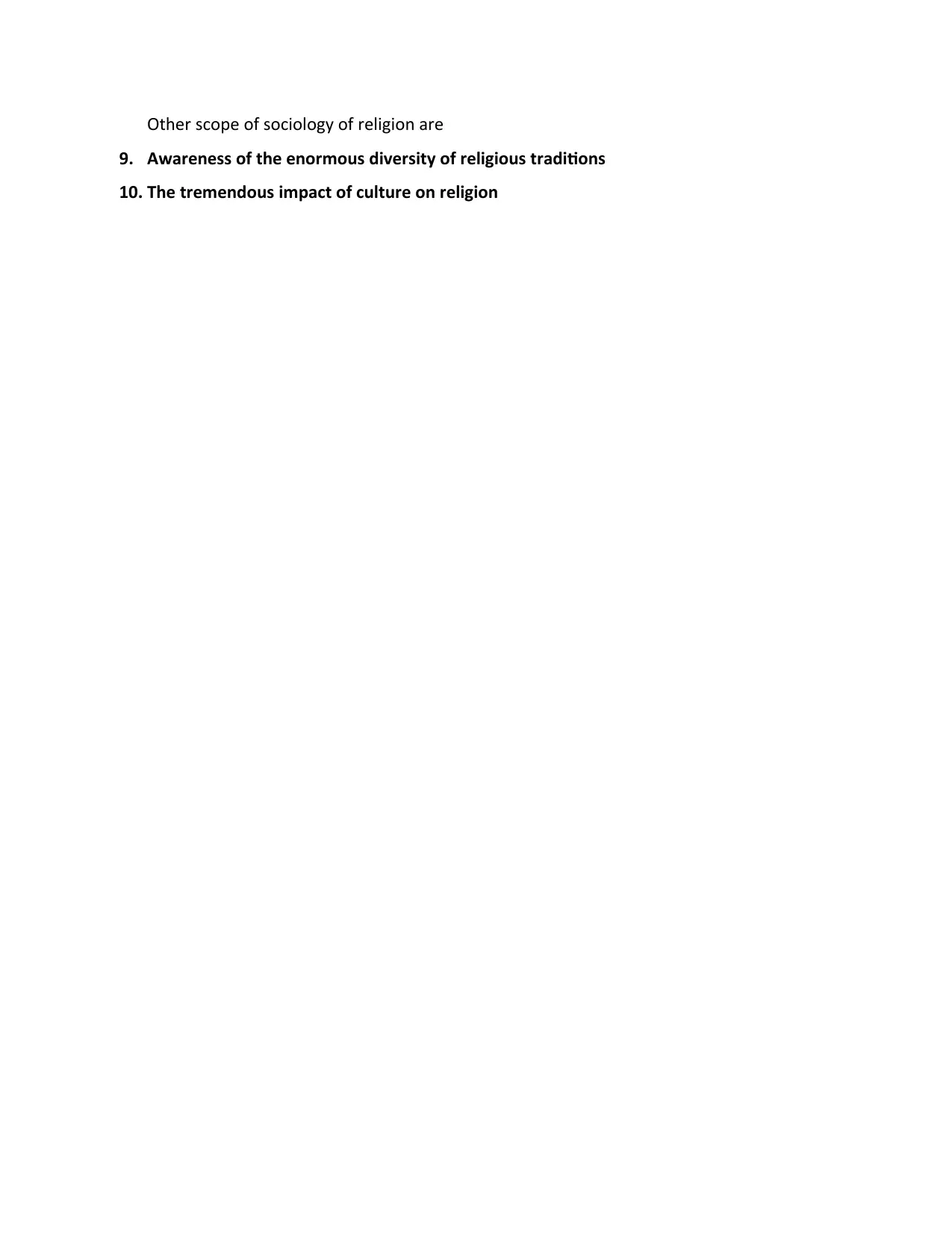Exploring the Scope of Sociology of Religion and its Influence
VerifiedAdded on 2023/02/06
|3
|546
|59
Report
AI Summary
This report delves into the multifaceted scope of sociology of religion, exploring its influence on various aspects of society. It examines how religion functions within the context of social phenomena, highlighting the interplay between religious beliefs, practices, and institutions. The report analyzes the impact of religious organizations, the role of religion in social change, and the study of religiosity. It also discusses the influence of social factors like race, age, gender, and education on religion, and vice versa. Furthermore, the report addresses the impact of religion on social, economic, and political institutions, emphasizing the diversity of religious traditions and their cultural influences. The assignment provides a comprehensive overview of the subject, covering the key areas of study within the sociology of religion.
1 out of 3










![[object Object]](/_next/static/media/star-bottom.7253800d.svg)